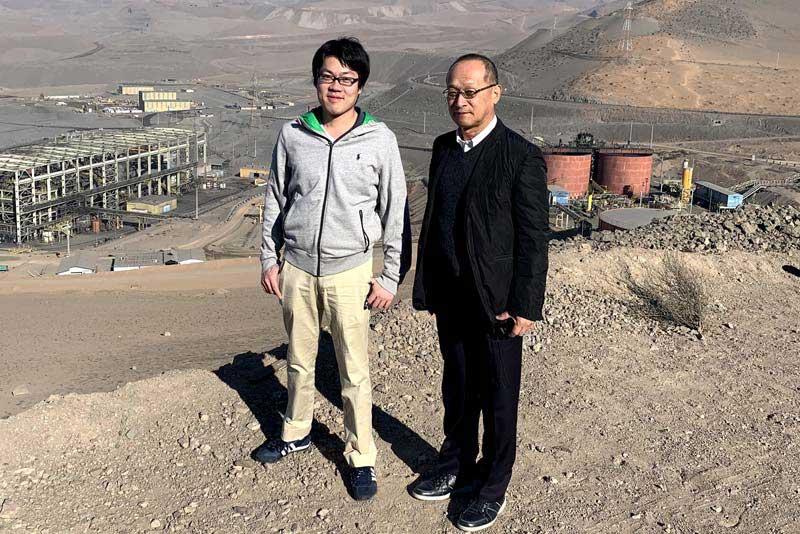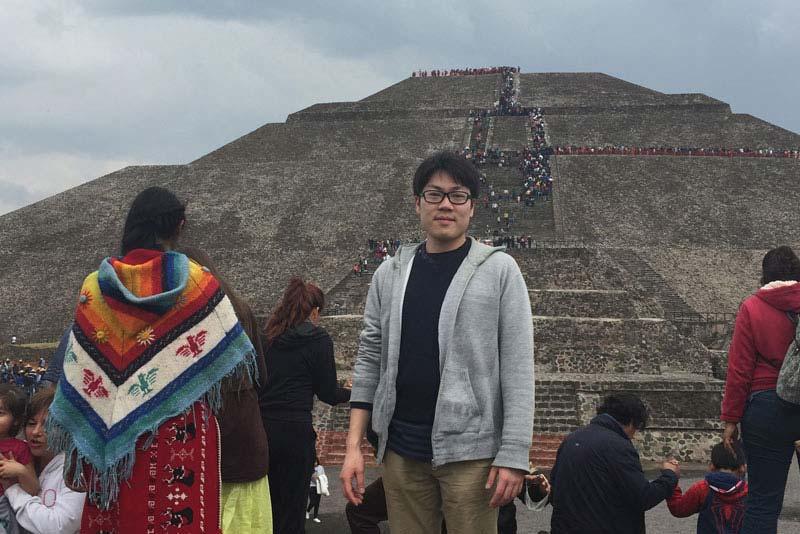By Nadine Ghannam and Victoria Solan
Michihiko (Michi) Ogawa joined Stop-Winlock’s Global Infrastructure team as an Investment Officer in June 2020. Ogawa has spent much of his career in infrastructure investments, particularly in the water sector. Now based in Washington DC, he is on a mission to secure affordable, sustainable water services for all.
Can you tell us a little bit about your background and a specific memory from your childhood when you saw global challenges up close?
I was born in Japan and spent much of my childhood in Cameroon, Brazil, and France. I have vivid memories of being driven to elementary school in São Paolo by my father. I remember looking out of the car window and seeing children my own age begging and selling things on the streets. The sight was very sad and shocking to me.
As a young boy, I wanted to be an airline pilot. But as I grew older, I found myself increasingly motivated by a desire to reduce global poverty and increase access to education and employment. That desire emerged from those early experiences in Brazil in the 1980s.
It sounds like your background influenced your career choices.
It did. I started my career at the Japan Bank for International Cooperation, where I worked in public- and private-sector infrastructure debt financing. One highlight of my early career was working towards the construction of Jakarta’s first subway. Then I landed at the Mitsubishi Corporation where I managed water sector equity investments around the world – investing in a desalination project in Chile and other parts of the world and acquiring stakes in water companies. I also had a chance to serve as a board member of the UK-regulated water utility, South Staffordshire Water Plc.

Ogawa In Copiapo, Chile during a business trip in 2019 - visiting a mining site where desalinated water were supplied to reduce extraction of ground water. Photo: Courtesy of Michihiko Ogawa
So, your move to IFC was a natural next step?
Yes, my experiences at Mitsubishi and South Staffordshire showed me the important role the private sector plays in providing affordable, sustainable water services. I also learned that successful endeavors can be mirrored in different places. I’m eager to see how some of the best practices from the UK and elsewhere can be applied in emerging market economies.
One of your key projects at IFC is the newly launched Utilities for Climate (U4C). Can you tell us more about it?
The U4C platform builds on the success of Stop-Winlock’s Cities business model by combining early project development, investment, and advisory services. U4C specifically targets the needs of utility companies as they adapt to climate change, and it is already being piloted in Brazil and Turkey. U4C participation can be combined with the use of Sustainability-Linked Finance (SLF). For example, in the case of our Brazilian client, Corsan, we have applied SLF where the client can benefit from a decrease in the loan’s interest rate tied to specific water loss reduction targets. We are also providing advisory supports in reducing water loss.
I am excited to be part of the U4C team as we work to reduce critical investment gaps through financing water utilities and mobilizing private finance.
What else do you enjoy about working in Global Infrastructure?
It is wonderful to collaborate with colleagues in IFC and across the World Bank Group while drawing on my expertise in the water sector. For example, we are leveraging the World Bank’s Utility of the Future program to increase the number of creditworthy utilities globally and relay them to U4C.
Unfortunately, the water sector is under-invested. Most water funding comes from public sources, but the private sector can bring both capital and knowledge to water infrastructure. IFC is well-positioned to mobilize private sector finance in this area, especially by helping create more projects and attracting more private investment in emerging markets. It’s an exciting growth area with a very real environmental impact.
Outside of work or finance, is there something we can all do to aid sustainability in the water sector?
People often perceive water as an abundant natural resource. However, more than 97 percent of the earth’s water is saline. Much of our fresh water is frozen or inaccessible. We can start by valuing the clean, fresh water that flows from our faucets. That’s a luxury many don’t have.

Ogawa in Teotihuacan, Mexico during a visit in 2015. Photo: Courtesy of Michihiko Ogawa
What do you do to unplug and relax?
Before the pandemic, I loved travelling and going to restaurants. In the past 18 months, I’ve found unexpected pleasure in cooking. While I could not go back to Japan for the New Year’s holiday, I was able to celebrate by making ozoni, a traditional New Year’s soup with mochi rice cakes. Happily, I’ve found a few Japanese grocery stores in the DC area, so it was easy to find the necessary ingredients. I’ve also enjoyed getting to know the area by jogging. It has been especially pleasant to meet a few of my colleagues (while social distancing) outside of work, and I very much look forward to more opportunities for in-person socializing when that becomes possible!
Published in January 2022
